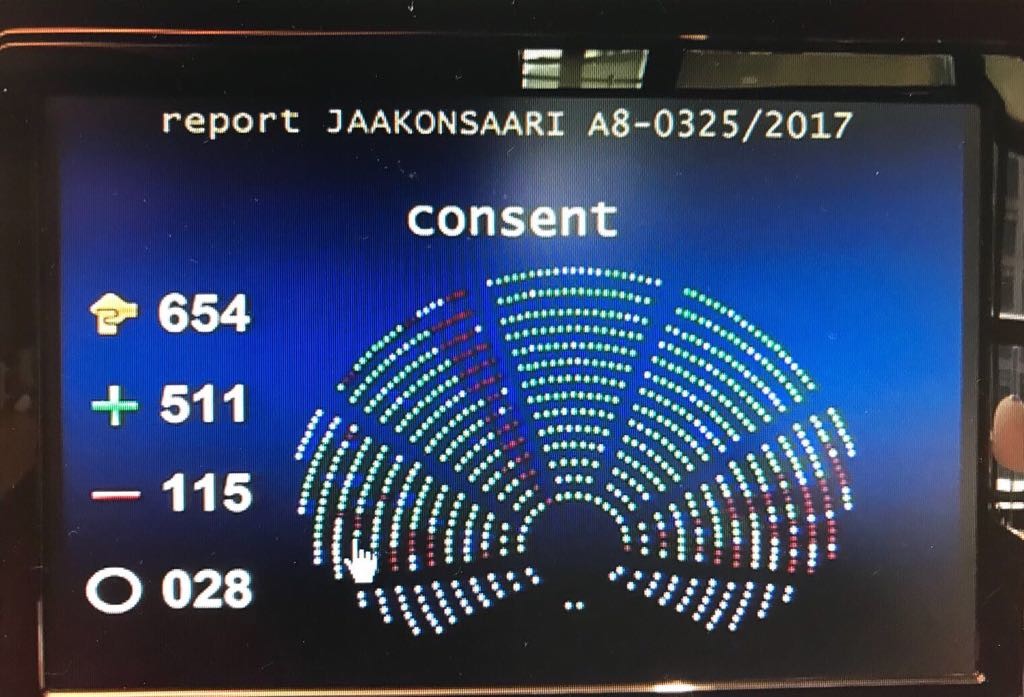ASTANA – The overwhelming majority of European Parliament (EP) members approved Dec. 12 the Enhanced Partnership and Cooperation Agreement (EPCA) between Kazakhstan and the European Union (EU) and its member states, the first of this kind concluded with a Central Asian country.
The EPCA, signed in Astana Dec. 21, 2015 and temporarily applied since May 1, 2016, was passed with 511 out of 654 present members voting in favour, 115 voting against and 28 abstaining. The agreement will fully enter into force once ratified by all EU member states. To date, 18 nations out of 28 EU states have approved the document.
“The EU opened a new chapter in its relations with Kazakhstan, the largest country in Central Asia,” tweeted EP member and former Slovakian foreign minister Eduard Kukan.
“The agreement will boost political and economic cooperation with this important country in Central Asia. The European Union is Kazakhstan’s biggest investor and one of its important trade partners,” said rapporteur and EP member from Finland Liisa Jaakonsaari during the debates the previous day. “Kazakhstan is crucial for the implementation of the EU Central Asia Strategy.”
Cooperation in the new format will boost work on such issues as “trade, energy and sustainable development, as well as security issues, such as combating terrorism and non-proliferation of weapons of mass destruction,” she added.
On the human rights front, Jaakonsaari argued the EP requires tangible reforms and improvements. Economic interests cannot take precedence over human rights, she said.
“The Parliament believes it’s a good thing for us to begin human rights dialogue with Kazakhstan and we hope that this country will regularly participate in this dialogue. We sincerely believe that an ambitious agreement will have a significant benefit for both parties,” she added.
European Commissioner for Justice, Consumers and Gender Equality Věra Jourová noted the EPCA “reflects the new level of ambition in our relations with one of the EU’s closest partners in the region.”
She stressed the EU’s relationship with Kazakhstan “has never been stronger.”
“The EU and our partners in Central Asia share many common objectives: regional peace and stability, fighting terrorism, fostering the rule of law and increasing prosperity and trade. The reinforced cooperation between the EU and Kazakhstan is an excellent example of how to advance in practice the goals and interests shared by both sides,” she said.
The agreement covers 29 areas of cooperation, from economy and trade to countering the proliferation of weapons of mass destruction and terrorism and cooperation in climate change, healthcare, public finance management and taxation.
Jourová noted the EU “appreciates Kazakhstan’s commitments to promote the green economy,” one of the European Commission’ priorities, as well as the country’s essential contribution to execute the EU Strategy for Central Asia.
On the international platform, she noted Kazakhstan has become “an extremely important partner in matters of regional and global security.” She highlighted the nation’s role in “strengthening the nuclear non-proliferation regime and international stability.”


